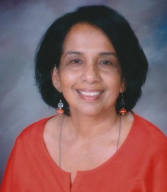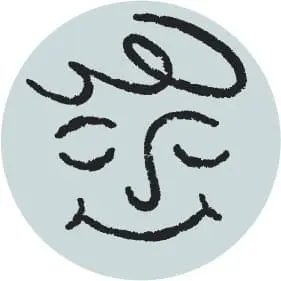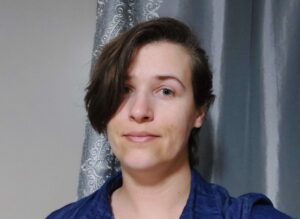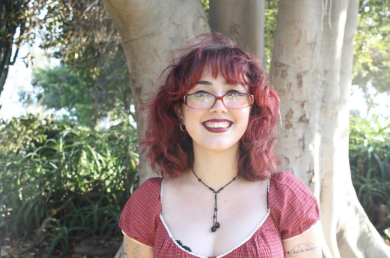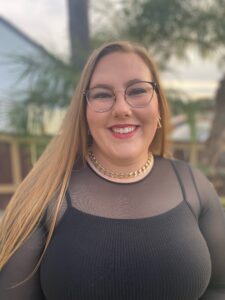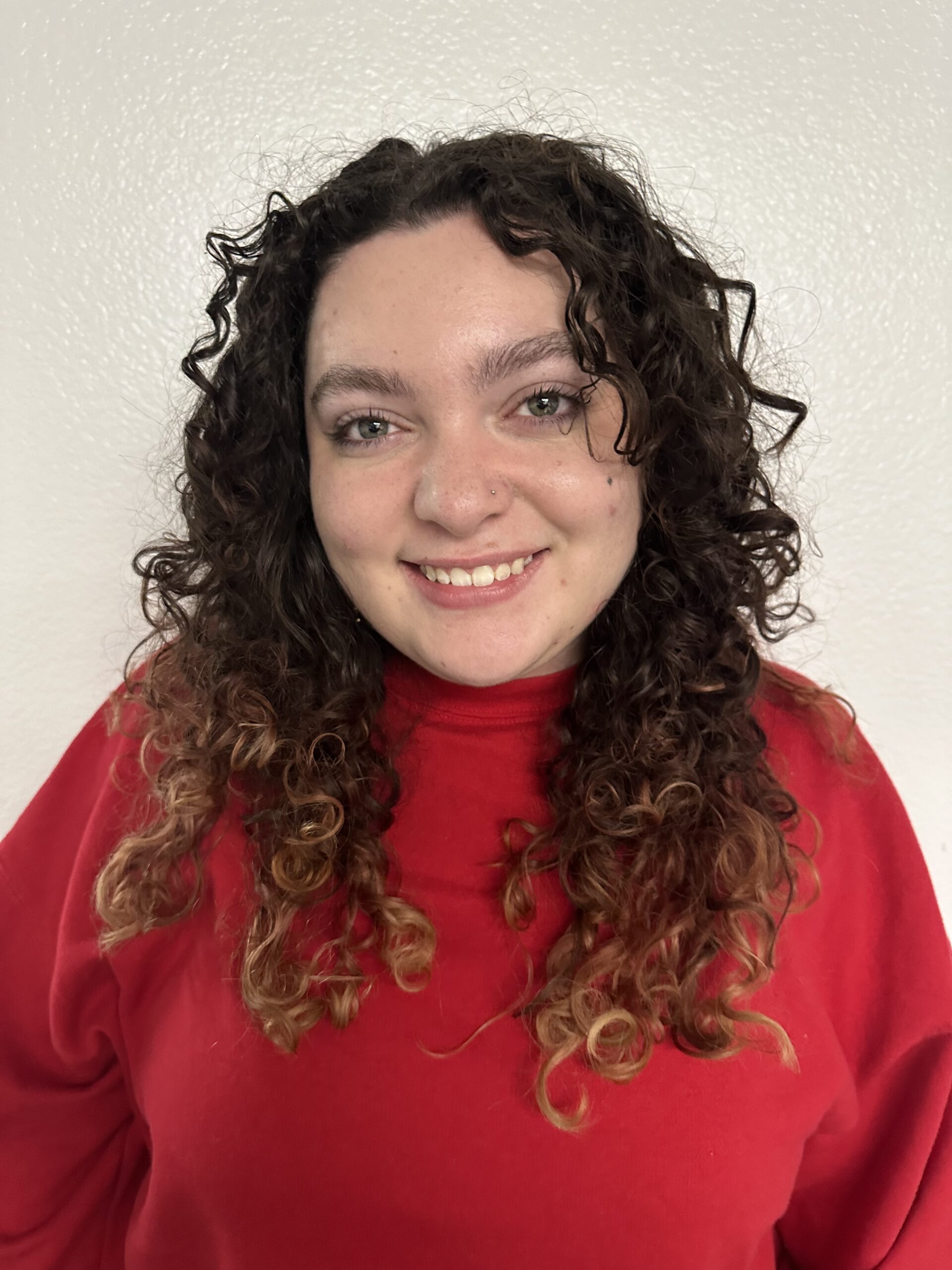When I tell people of her, I do not tell them of all the good, of all the love, of all the sentimental; instead, I tell them of how it ended, of how she was left splintered and lifeless, of how I was left with blood on my hands.
Ten years ago, I met a girl with unruly fire in her hair and stars as freckles underneath the big oak tree only a block away from my house. That day, she asked me what book I was reading, and I responded, “Nothing exciting.”
“It must be exciting,” she said accusingly, “you’re reading so closely.”
I took in the girl’s bright skin and dull clothing; her shirt barely clinging to her shoulders and her pants saggy in the way a boys should be. But there she stood, staring down at me. All I could think to say was, “Who are you?”
She then introduced herself proudly as Daisy. I don’t recall ever telling her my name or her ever asking, but over time she learned it and over time her saying it became my favorite sound; when she said it, it felt important. But that day, without even knowing my name, Daisy sat down right there next to me. From then on, we would spend our days there. My books grew in size and her’s slowly turned into pencils and sketches. She became my best friend, easily and simply.
“You’re so easy to draw,” she had said to me once, when we were twelve and everything was gangly and awkward. I remember that as the year I finally got my braces off – I loved smiling at her. I raised an eyebrow at her, slightly offended. “Are you saying that I am simple looking?” “No, Eleanor,” she smiled so fully that her canines peeked beneath her lips, “I am saying that I enjoy drawing you.”
She giggled, the cadence much like church bells. I’ve always hated the sound because it meant it was Sunday and Sundays reminded me of my mother’s insistent sharp stare, my father’s raspy singing of hymns and a preacher who’d stare directly at me with personal, infernal hatred. But her laugh was contagious in the way religion is and so I giggled with her. She was quite the opposite of simple, the type of person that the more you stared at her, the more difficult it was to understand her features in relation to each other. Every feature was simple and average on its own but placed together in a kind of lovely Frankenstein. I wondered then how she would draw herself; if she could capture the cupid bow of her lips or perhaps the tiny mole that poked out from her hairline.
Daisy never let me see her drawings, especially the ones that I starred in. It’s one of the few things she kept from me. But that was okay, because the thought of bearing witness to her perspective of me was oddly terrifying. So, I let her shuffle into a corner and sketch.
That is how our friendship continued throughout the years. Though slowly our favorite spot would shift from the big oak tree to the high school football field to the cliff at the edge of town. Each place brought with it a new experience. In such a small town, there wasn’t much to do or many places to be so we’d find ways to entertain ourselves. The kids in our grade began drinking, so we drank in the football field after hours; the kids in our grade began smoking, so we would turn to the cliff and roll a joint. It was easier to stay outside, fuzzied by whatever, than going home to our families. And slowly, in between it all, she became my person.
One day, I looked at her, really inspected her, and I couldn’t believe how much she had grown. I never understood that, how I could be three inches taller than her and still feel as though I am the little girl with ill fitting clothing reading under the big oak tree. Still, though, my mother saw me growing into a lady and she expected for me to act as such, and slowly the judgmental eyeing shifted to long arguments about anything she could nitpick at.
When I was fifteen, my mother stopped me as I shrugged my jacket on at the door. I was on my way to see Daisy, as I always was.
“Eleanor,” she began, eyeing my oversized t-shirt, “where are you going?”
“I’m going to see Daisy,” I tell her, though she knows.
She sighs, patting her perfectly slicked dark hair, “I know you two hang around that cliff.” I nod and once more reach for the door in an attempt to escape the room as the walls begin to feel as though they will close me in. My mother hated the cliff at the edge of my neighborhood; it was dangerous, parents cautious of it due to the multitude of stupid, drunk kids falling down it and into their demise. Yet, I felt more at home among those jagged rocks than here, in the corridor of my white walled house.
“I don’t want you near there, Eleanor,” she spits out before the door can even open. “It’s bad enough you hang out with that girl.”
My mother’s eyes burn a massive hole into my back as I say, “Daisy’s fine, mom.” “Did you know her mother hasn’t attended church in months?”
“I didn’t.” Even without looking at her, I can see the way her arms cross over themselves and the way her eyes stare at me up and down as though I am an unfamiliar ghost haunting her perfect home. “Did you know her father is a drunk?” She asks.
“I didn’t,” I lied.
“Eleanor,” she says, and I finally turn my head to her, “I love you and I want you to be safe and I’m not sure she’s good for-”
I nod, dragging the sleeve of my jacket down to my thumb. “Yeah, I know mom.” “Please, be safe.”
“I always am.”
I open the door fully and I wait for her to say something, for her to physically stop me, for her to do anything else; but she doesn’t. She never does, and yet I expect it every time. She brushes down her long-striped skirt, makes an awkward coughing sound, and retreats to the kitchen as I escape the foreboding white walls.
Conversations with my mother always seem to follow that script, a back and forth of judgment spoken and unspoken. Other than our shared dark eyebrows and broad shoulders, my mother and I are quite distinct. She is someone who is so sure of everything, so sure there is a God, so sure she will make it to Heaven, and so sure that whatever she sees in me is simply a mistake and one day I will realize it too and marry a nice Southern man. I, to juxtapose, am so unsure of everything I do. I know very little for certain and I find a horrendous comfort in that. I find comfort in knowing that despite our absolute familiarity, I will never become my mother with her white wall house and her off-putting husband and a child who’d rather dance at the edge of death than suffocate in her house.
These thoughts corrupt my brain when I finally make it to the cliff. The cliff was known as the best secluded area in town; the trees shielding it from the road that led to it and if you slowly trailed it down, you’d be met with multiple rocky edges where you could sit with your feet dangling. There, at our normal ledge, sits Daisy. She seems blissfully unaware of my presence, eyes closed, and mouth pressed into a humming smile. I disrupt by settling my hand on her shoulder, but she does not jump, instead turns her face up at me slowly like she has all the time in the world.
“Hey,” she says, her grin lopsided and overwhelmingly joyous.
“Hi.” I make a seat beside her, gently resting my hand over her’s.
She talks as I roll the blunt and the night goes on as we giggle and talk – we have a universe of things to discuss.
When the high is weaning, we begin to trail our way back to the top. Daisy grabs my hand, laces our fingers together and tugs me upward. Even now, I can imagine how her hand felt, softly calloused, and how her eyes gleamed at just the sight of me following after her.
“One day, we’re going to make it out of here,” Daisy tells me.
“How about New York?” I joke, my eyes stuck on the ground, watching my footsteps carefully. “Yes, New York!” She exclaimed like I’m a genius. “That’s where we’ll live, Eleanor.”
We get to the top of the cliff, far from the impending hell at the bottom. Daisy turns to me, our hands still interlocked, and she leans in and touches my cheek gently with her free hand. When she pulls back, there sits my dark eyelash on the tip of her finger.
“Make a wish,” she tells me.
“You’re such a little kid,” I tease, and she sticks out her tongue.
And still, no matter how childish, I close my eyes, take a deep breath, and blow the eyelash away. When I open my eyes, I am blessed with the sight of Daisy’s round eyes staring at me like she knows exactly what I wished for, like she could pick out a piece of my mind and sculpt it perfectly. It’s my favorite memory of her and I wish I had a picture or a painting of her as she looked there, blushed and angelic.
“Did you wish for our apartment in New York?” She asks.
Grinning, I squeeze her hand. “Of course I did.”
As we walk back to our small neighborhood, we discuss the colors and wallpaper and decorations of our New York penthouse; and, in that moment, it became everything I’ve ever wanted because she wanted it. And when I come home that night, eyes drooping and heavy, my mother is fast asleep on the couch, the T.V blasting. I pull a blanket over her and her snores follow me up the stairs and to my bed. A year later, my mother stopped bothering to ask where I go or who I go with.
I can tell she’s tired of the unchanging answer, tired of me and my father and her imperfect life. Even so, it isn’t until my senior year of high school when my mother stops pestering me to attend church in my powder blue dress. So, on Sundays like today, I get the entire house to myself.
“Who is it this year?” I asked Daisy sometime during our first week of senior year as I carefully braided her hair on the floor of my cluttered bedroom.
Every year she’d focus on a random boy in our small town and every year I’d jokingly gag and loudly tease her until we’d dissolve into laughter. Luckily, no one was home tonight, my parents preferring to attend a baptism, so our door stayed propped open and all our secrets spilled into the hallway.
“No one,” she hummed content. “All the boys are stupid this year.”
“They’ve always been stupid,” I say as I wrapped the bottom of the braid with my favorite ribbon, white stitching on yellow fabric.
She laughed, turning around to face me. The flyaway hairs of her braid felt something like a halo. I loved that she never questioned my disdain towards boys, I felt that she understood, somewhere deep down that I’ll never be infatuated with a boy in the way she always seemed to be. “You’re right, Eleanor,” she answered, giggling all the while, “you’re right.”
“I always am,” I said, “I’m glad you’ve finally caught on.”
It was dark outside, the stars winking mischievously, but both of us knew not to lay our heads to rest. There was a deep understanding of our routine, of what came next as I pulled out a small Ziploc bag of greenery.
“Now, shall we go for a walk?” I ask, winking.
The obvious response follows, “Absolutely!”
We meandered to our beloved spot, the cliff a couple of blocks away at the very edge of my neighborhood, the night swallowing our footsteps.
It was understandable that so many parents warned against it, but to us, this was our youth. It was our small rebellion to sit on one of those rocky edges and roll a blunt, letting the smoke pollute the sky. Some nights we talk until our voices scratch like an over-played record, other nights, nights like tonight, we sit in silence and ponder.
Suddenly, after what felt like centuries of kicking my feet and inhaling, she turns away from the sky and smiles at me. Her eyes blazed just as hot as her hair, the smoke around us painting her into what I hope hell looks like – fiery, dangerous, wildly lovely.
I could say that I don’t know what it was about that exact moment that made me lean in, but that would be a lie. It was scary to want to kiss someone who felt like they’d burn you alive. But I wanted to, right then, because she looked lovely, because her sketchbook was filled with my crooked nose and almond eyes, because she always looked at me with so much adoration, but mostly because I felt I’d never get another chance.
But before I could touch her, she pulled away. Her eyes, the size of my mother’s favorite coasters and her mouth, pressed into a paper-thin line. My skin bubbled over like boiling water, the embarrassment and hurt creeping through my veins quickly as she shifted her body farther from me, closer to the edge. “Eleanor,” she said. “That’s not – what are you doing?”
For a moment, I thought she was disgusted. But for the second I sat there; I realized she was so very scared. I knew fear almost as well as I knew Daisy; the way it shaped itself around me, clinging to my body like a sickly second skin. I knew fear, personally. She had leaned in, I was sure of it, but that didn’t make my heart hurt any less.
“I thought-,” I began.
I had never seen her move with such quickness as when she stood up to leave. I tried to move with her, to explain myself to her betrayed look. I reached for her shoulder only for her to shove it off, as if just my touch was torching her.
“I can’t,” she said as I stumbled from the strength of her shove, “I’m not-.”
She stops herself. Like you, I fill in the blank. I can tell she hates that she thought it, her large eyes glistening with tears and I see the fear begin to grip her. Because she is like me, she has to be,she leaned in too. Even though my heart pinched, I reached once more for her shoulder praying that I could explain myself. She jolted backwards, her body toppling slightly at the loose rocks below her feet. I went to steady her only to yet again be denied.
“Daisy, c’mon,” I tried to reason. “I thought, maybe-”
“No, Eleanor-,” she said, once again taking a step back.
I reached one more time, but she was too fast, and too high, and the cliff too unsteady. I shouldn’t have pushed it; I shouldn’t have kept going. I should’ve let her live in fear.
“Daisy, please, let me explain.“
There are moments when time seems to move at an immaculate speed; this was one of those moments. You never imagine losing someone, not when everything is still new and the sky is so full of undiscovered secrets, not when that someone is your best friend, not when it was all your fault.
I’ve never been so patient as when I waited for her lungs to fill and her blood to flow from above her like God waiting for the dust to turn human. But, unlike God, I was left gutted because she was just that, dust, and no longer a living, breathing Daisy. In an instant, she was lifeless beneath me. Those moments with immaculate speed are preceded by an eternal silence as everything, all the wind and all the blood-curdling screaming sets in.
When I came home, later than usual, my mother sat on the couch waiting for me. “Eleanor,” she said, worried, “where have you been?”
I think she could see the turmoil in my eyes because she didn’t wait for a response and simply opened her arms. It was the only time I ever collapsed into my mother, the only time I let her fingers massage my scalp as she quietly prayed over me; it was the only time prayer didn’t feel like guilt. “What happened?” She asked, finally, when my sobbing died down.
“Daisy – she,” I hiccuped, “the cliff-“
My mother flinched at the mention of the cliff, “Did she fall?”
I sob again, clinging to her cardigan like a lifeline.
“It’s my fault,” I attempted to explain, “I tried to-.”
“She jumped,” my mother stated, as if simply putting it into the universe will alleviate the guilt that weighs me down. “Oh honey, that poor girl.”
My mother doesn’t ask any more questions, and I don’t correct her. If she knew the truth, all of it, the entire moment, I don’t think she would ever forgive me. I think she knows it too. And so, the sickly skin takes hold of my words, and so I nod.
People never ask for a story of her life, of her drawings, of her church bell giggles. They – the court, the town, my mother – ask me what happened that night at the cliff, and I let Daisy’s fear and my mother’s disappointment run through my lips when I tell people she jumped in a bout of influenced stupidity. All these people, who did not know her, believed me – Daisy jumped because her mother hates God and because Her father is a drunk and because she could never, truly make any other friends. When I tell people about her, I do not say she was my first love. They don’t care, they would never understand. Instead, I describe the way her body looked splintered at the very bottom of the cliff, the only recognizable aspect of her from the top being the flames of her hair sprawled around her.
But I remember her – I put my entire being into remembering her. Weeks after the funeral, against my mother’s wishes, I helped Daisy’s mother, Beatrice, gather her things. She lets me take a couple of necklaces and Daisy’s beloved sketchbook. Beatrice wouldn’t give me Daisy’s pink sticker-polluted diary, even though it had all the answers, and I couldn’t find it in me to hate her for it. I wasn’t destined to know; Daisy’s sin ended with death and mine continued by outliving her.
A year later, I spent my time in the local community college, picturing how I could be in a cramped New York apartment, making sickly sweet waffles to bring to Daisy as she woke up for another day of work. She would giggle and I would kiss her and it’d be normal.
And when I finally did get my first girlfriend, a tall brunette with too-perfect teeth who sat behind me in my college freshman English class, I pictured Daisy smiling down at me. At the end of the year, I finally opened up Daisy’s sketchbook, I hadn’t had the heart to do it before. No matter how vain it sounds, I thought I’d find portraits of myself at every age, perfectly rendered, but instead, I found only parts of myself sketched to the side of the pages – my nose, one of my eyes, my lips. But never me as a full, human portrait. I sobbed into my then girlfriend’s arms, and I felt no comfort.
I wish I had ended when she did like two parallel lines eventually destined to cross, but I didn’t. My line continues, inevitably and irreversibly bent by Daisy.
Author Bio
Gaby Lopez
Gaby is a freshman at CSUSM who has always loved reading and writing. She takes moments of her life and her experience as a Hispanic/Latina woman and creates stories and poetry. She is planning on using her degree to further her love of books by entering the publishing industry and hopefully becoming an established writer. In her free time, she enjoys playing D&D, hanging out in nature, and frying plantains for all her roommates.


